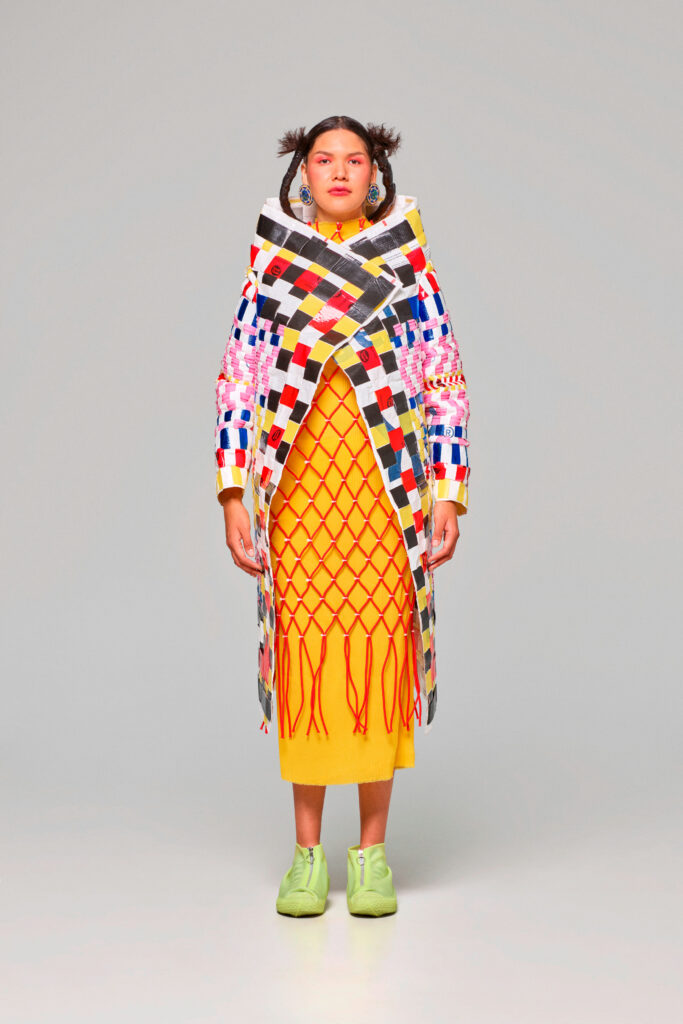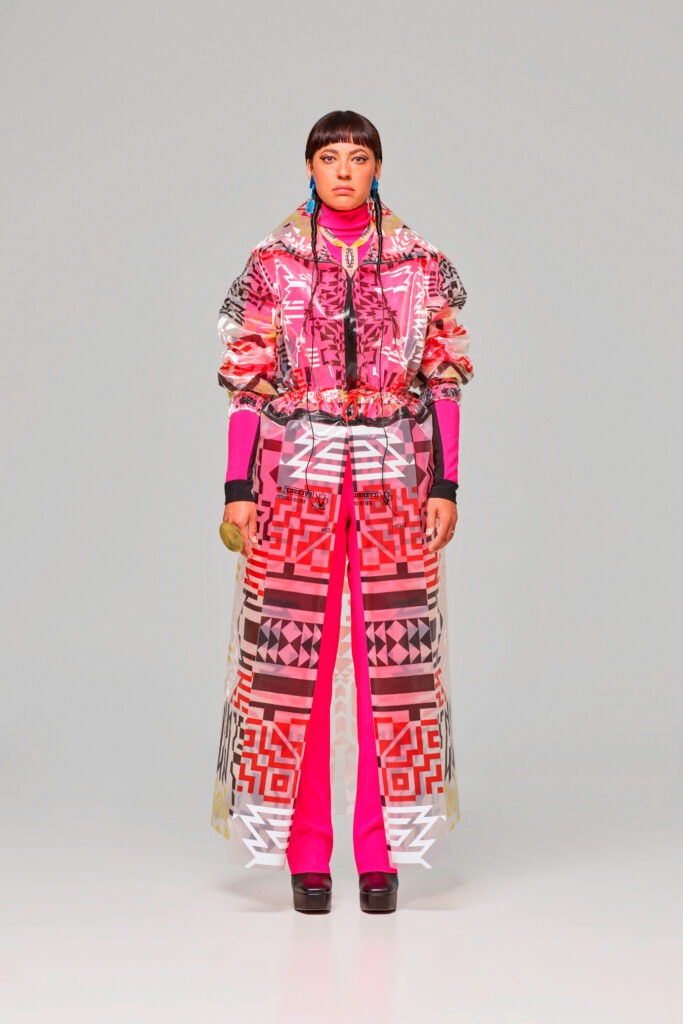Multidisciplinary artist, Caroline Monnet will this year be the spokesperson for the 15e edition of Expo World Press Photo Montreal (August 31 to October 2). Daughter of a Breton father and an Anishinaabe mother, Ms. Monnet seeks in her artistic approach to “go against the stereotypes” attributed to Aboriginal people. During the exhibition, she will present her exhibition as a world premiere Ikwewak (Women), a series of photos featuring First Nations women.
“It’s a great opportunity, the opportunity to present my work to a wide audience and that’s extraordinary. The Expo World Press Photo Montreal, everyone goes there, people from all walks of life! », Expresses Caroline Monnet.
For her, this event is “the ideal opportunity to exchange, to open a dialogue”. “It allows us to take an overview of the current realities that are taking place all over the world today! These are very poetic photos, but very loaded, sometimes difficult to look at, but the fact that they are shown in an artistic and aesthetic way, it allows a rapprochement with these realities, and it is necessary to be upset, to ‘to be touched, to learn,’ she continues.
Mrs Monnet adds that she also accepted her mission as spokesperson thanks to the winning picture in the Photo of the Year category: Kamloops, a snapshot of Amber Bracken taken in memory of the victims of residential schools. ” She [la photo] touches me deeply and personally. Inviting me to be a spokesperson is then a double symbol, in my opinion”, continues the one who has always been interested in photojournalism.
Indeed, although she qualifies her own work as a work of art and not as journalism, Caroline Monnet has sought since her beginnings to represent populations, in particular the Aboriginal peoples, and to convey messages. “I do not capture reality, I build it as an artist, but there is always a search for words and objectives behind my works”, affirms the one who notably directed the film. Bootleggerselected several times at the last Gala Québec Cinéma.
“Women, strong, elegant, eccentric and proud to be indigenous”
Since 2016, Caroline Monnet has been exploring different artistic movements “through the Indigenous lens”. Thus, in 2016, she created the short film Creature Dada, paying homage to the Dada artistic movement, which questioned all the aesthetic codes established a century earlier in Europe. Subsequently, she focused on the Renaissance or the October Crisis.
Today, with his exhibition Ikwewak (Women), she continues her research and this time plunges into the futurist movement, a current which, when it appeared in the 1910s, valued the expression of modernity and dynamism. “In Femmes, I take a look at my generation which wishes to transpose itself positively into the future, relying on tradition, while taking its rightful place in society. There is a sense of excitement about the future that we will build together for the seven generations to come,” says Ms Monnet.

In this photographic series, six women were photographed. They all represent “emblematic figures, women who do great things”, for Caroline Monnet. It includes Dene chief and costume designer Swaneige Bertrand and Abenaki filmmaker Alanis Obomsawin.
“It’s to show that we have to think about a future together, that the indigenous woman has her place in the construction of our societies,” she adds.
“I myself created the costumes that the women are wearing in the photos,” explains Caroline Monnet. “It’s the first time that my practice in image meets my practice in plastic arts. As in her installations and sculptures, she decided to use building materials to elaborate the clothes used for the occasion.
A “signature” that allows him to discuss different issues. “What does it mean when you wear your habitat? I also wanted to talk about regaining control of one’s habitat, about self-determination. You have to treat a house like a human body. If she is sick, it affects her physical, emotional, spiritual state… You have to bring a little pride back into the houses you build and have a long-term vision. What impact do we have on our environment and it on our well-being? asks the photographer.
Through her work, Caroline Monnet seeks to “represent Aboriginal people in a positive way”. “Often they are portrayed very darkly, and as victims. Women, for example, are often shown busy doing crafts,” she says. To “get out of stereotypes”, Ms. Monnet went the other way by offering colorful and more direct images. “We see women there, strong, elegant, eccentric and proud to be Aboriginal,” she concludes. “Most often I photograph women looking directly at the camera. It goes against the colonial gaze that we had or the anthropological gaze that we are used to observing. »

